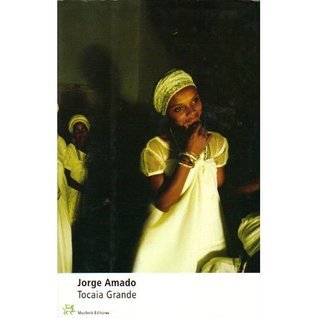
A classic Brazilian "Western" full of romance and adventure, violence and courage, and peopled with wonderfully earthy characters from the legendary author's childhood. "Set in Bahia at the turn of the century, Showdown is brimming with the gunmen, fugitives, prostitutes and other characters who settled that sunbaked northeastern state."—The New York Times "[Jorge] Amado has returned to some of his earliest, most radical concerns, confronting Brazilian society, memory, and mythmaking, and aiming to show, by anecdote, how the Brazil of the modernizing present has buried its (criminal) past."—Commentary "The Brazil [Amado] writes about in Showdown shares many of the traditions of the American frontier, and that is something Americans can relate to."—Linda Grey, former Bantam president and publisher "Showdown is a combination of the old Amado, who wrote Bahian historical novels, and the new Amado, with the spirit of Gabriela."—Gregory Rabassa, National Book Award-winning translator of Showdown
Author

Jorge Amado de Faria was a Brazilian writer of the Modernist school. He was the best-known of modern Brazilian writers, his extensive work having been translated into some 30 languages and popularized in film, notably Dona Flor and her Two Husbands, (in Portuguese, Dona Flor e Seus Dois Maridos) in 1978. His work dealt largely with the poor urban black and mulatto communities of Bahia. (Wikipedia) Jorge Leal Amado de Faria (Itabuna, 10 de agosto de 1912 — Salvador, 6 de agosto de 2001) foi um dos mais famosos e traduzidos escritores brasileiros de todos os tempos. Integrou os quadros da intelectualidade comunista brasileira desde o final da primeira metade do século XX - ideologia presente em várias obras, como a retratação dos moradores do trapiche baiano em Capitães da Areia, de 1937. Jorge é o autor mais adaptado do cinema, do teatro e da televisão. Verdadeiros sucessos como Dona Flor e Seus Dois Maridos, Tenda dos Milagres, Tieta do Agreste, Gabriela, Cravo e Canela e Tereza Batista Cansada de Guerra foram criações suas. A obra literária de Jorge Amado – 49 livros, ao todo – também já foi tema de escolas de samba por todo o País. Seus livros foram traduzidos em 80 países, em 49 idiomas, bem como em braille e em fitas gravadas para cegos. Jorge foi superado, em número de vendas, apenas por Paulo Coelho. Mas em seu estilo - o romance ficcional -, não há paralelo no Brasil. Em 1994, a sua obra foi reconhecida com o Prêmio Camões. (wikipedia)